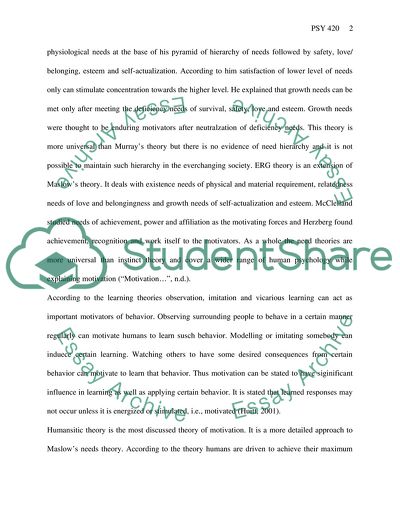Cite this document
(Discovering Motivational Theories Essay Example | Topics and Well Written Essays - 1750 words, n.d.)
Discovering Motivational Theories Essay Example | Topics and Well Written Essays - 1750 words. https://studentshare.org/psychology/1716000-psy-420
Discovering Motivational Theories Essay Example | Topics and Well Written Essays - 1750 words. https://studentshare.org/psychology/1716000-psy-420
(Discovering Motivational Theories Essay Example | Topics and Well Written Essays - 1750 Words)
Discovering Motivational Theories Essay Example | Topics and Well Written Essays - 1750 Words. https://studentshare.org/psychology/1716000-psy-420.
Discovering Motivational Theories Essay Example | Topics and Well Written Essays - 1750 Words. https://studentshare.org/psychology/1716000-psy-420.
“Discovering Motivational Theories Essay Example | Topics and Well Written Essays - 1750 Words”. https://studentshare.org/psychology/1716000-psy-420.


